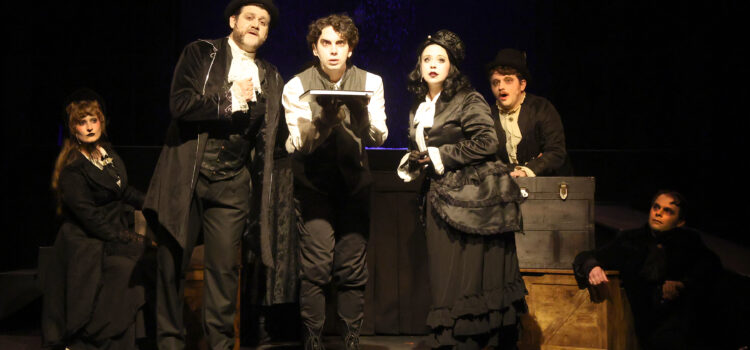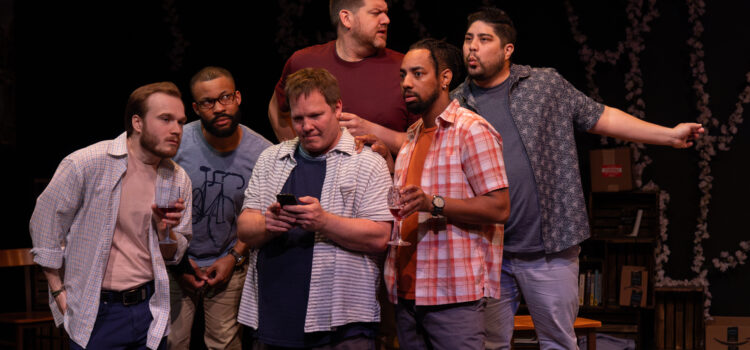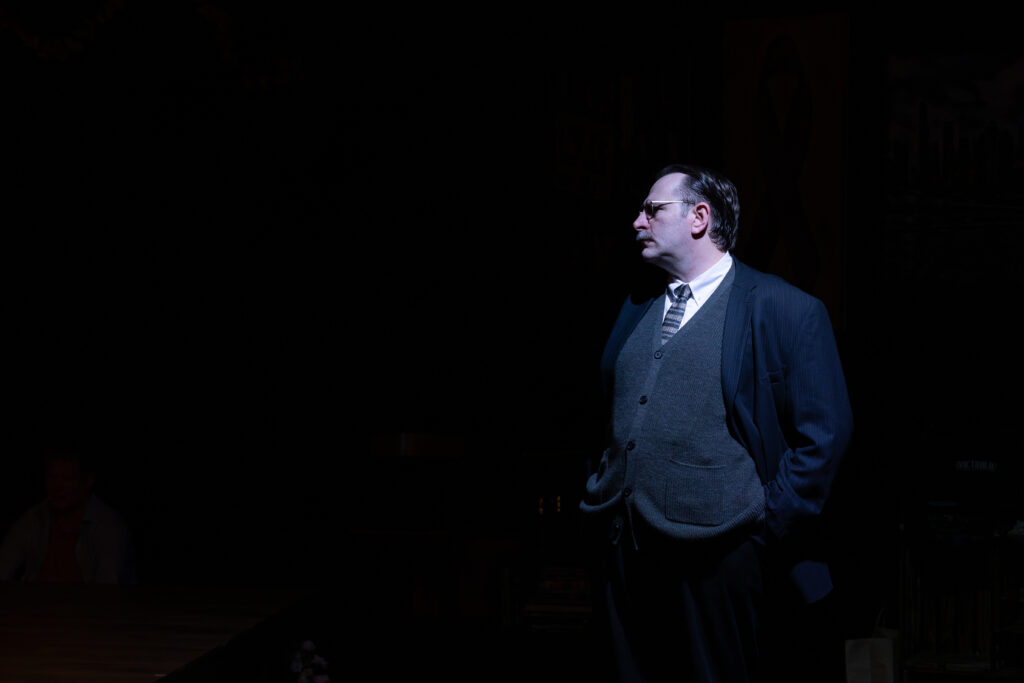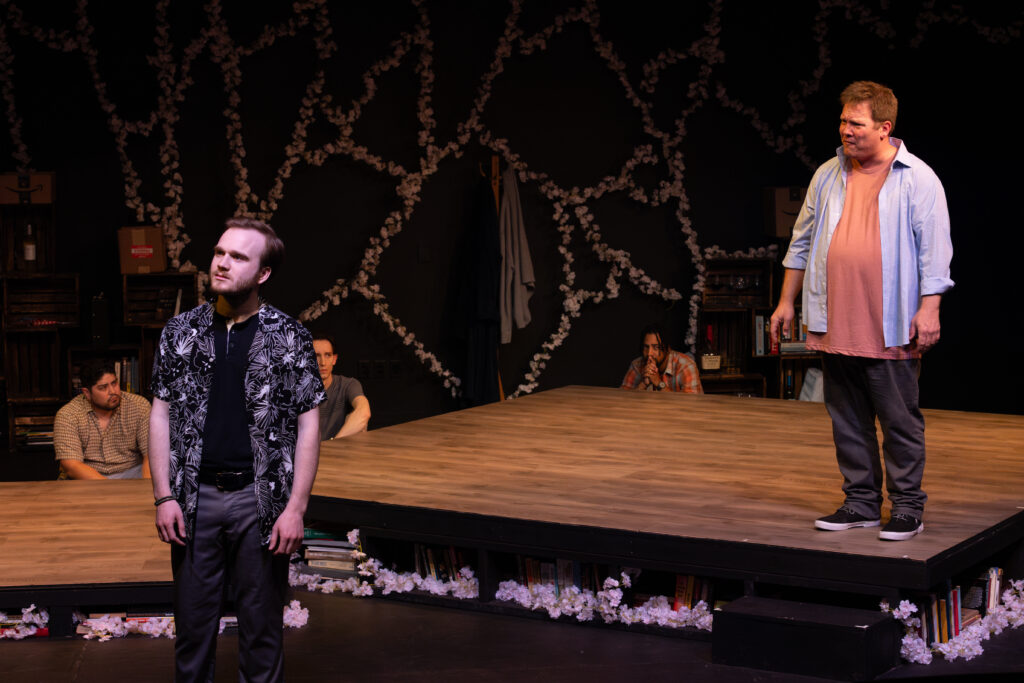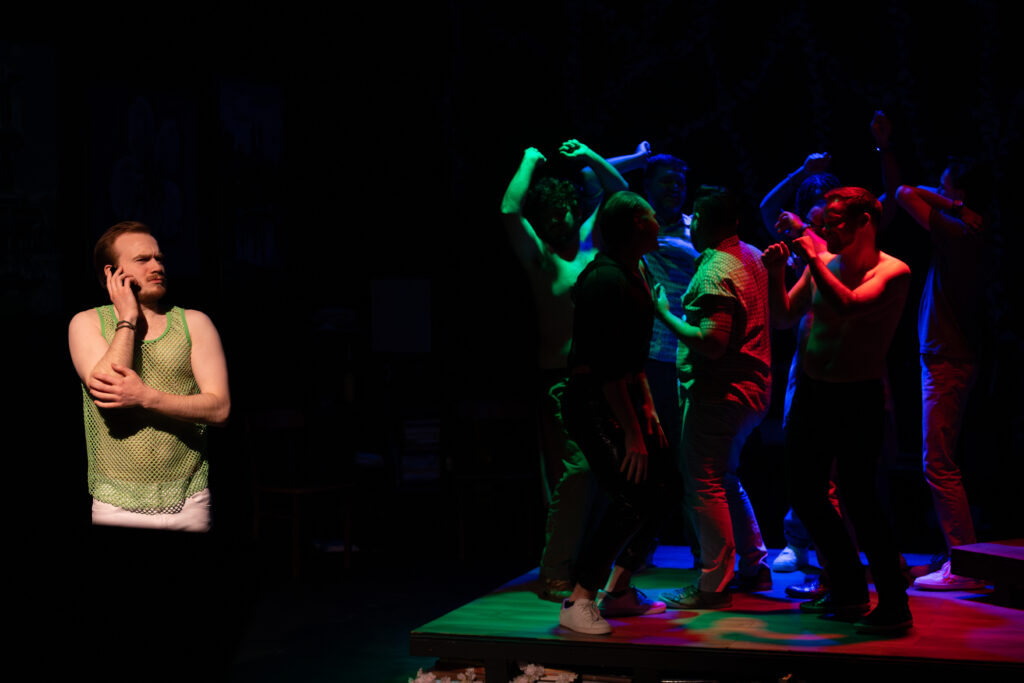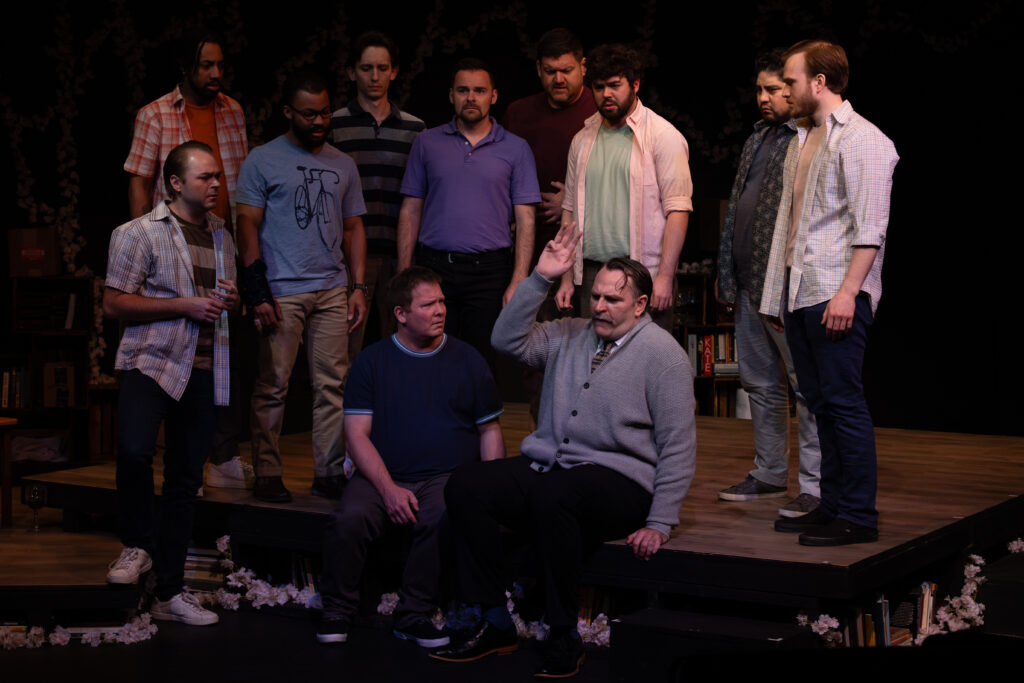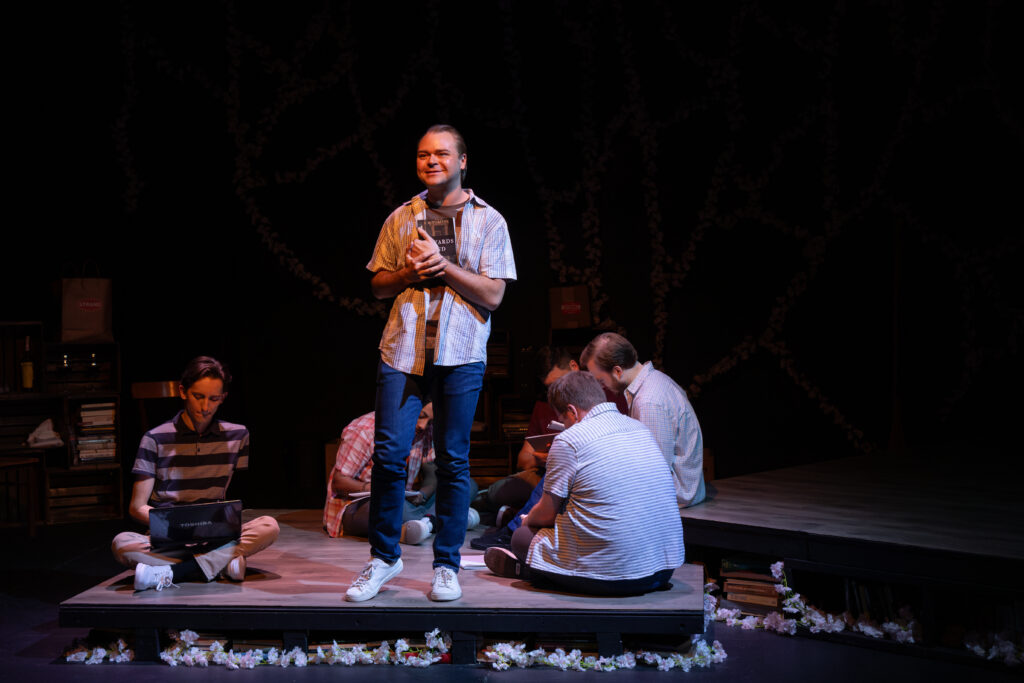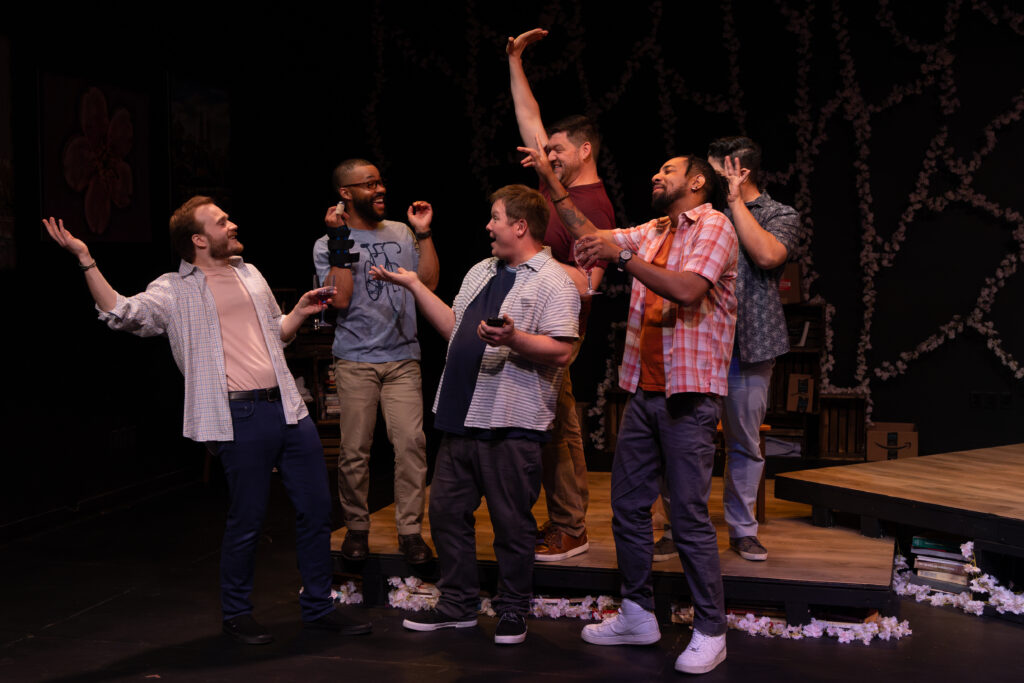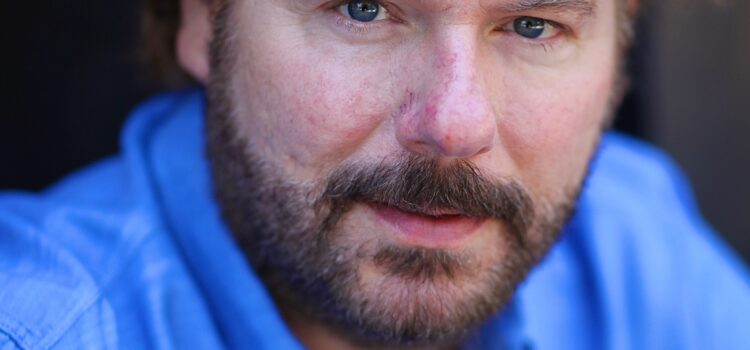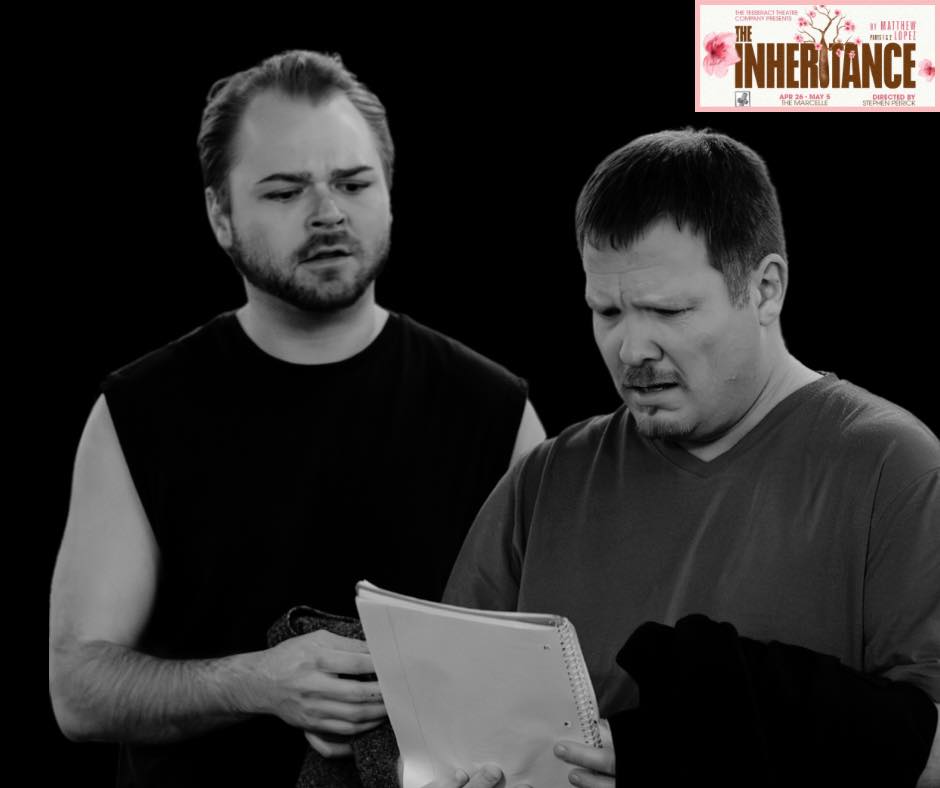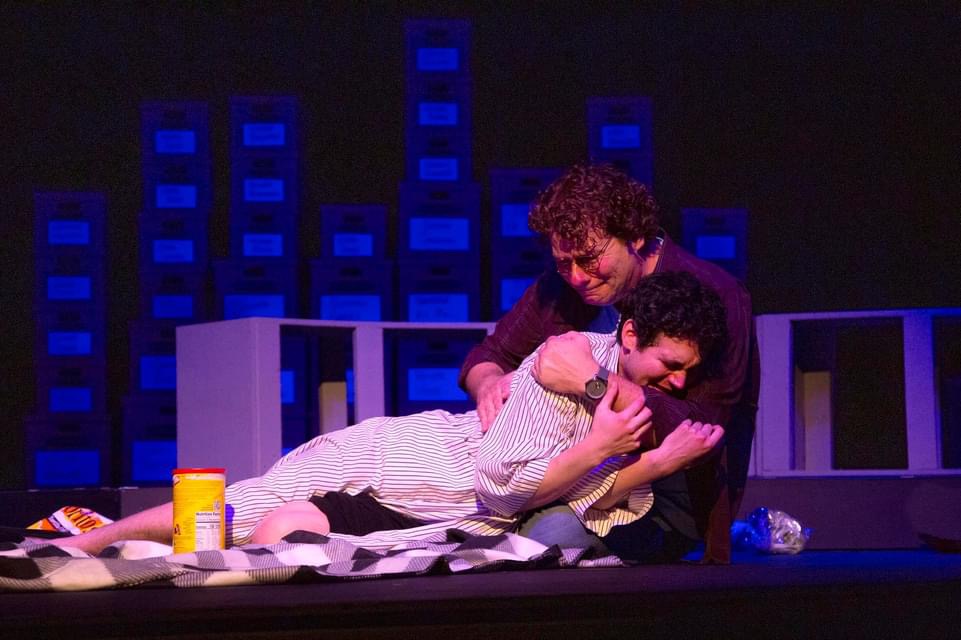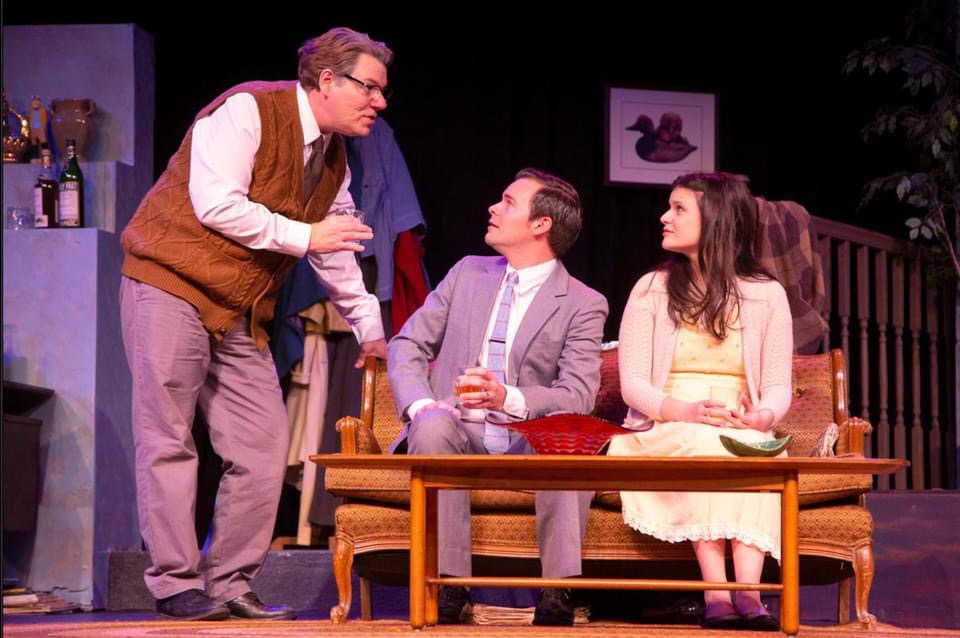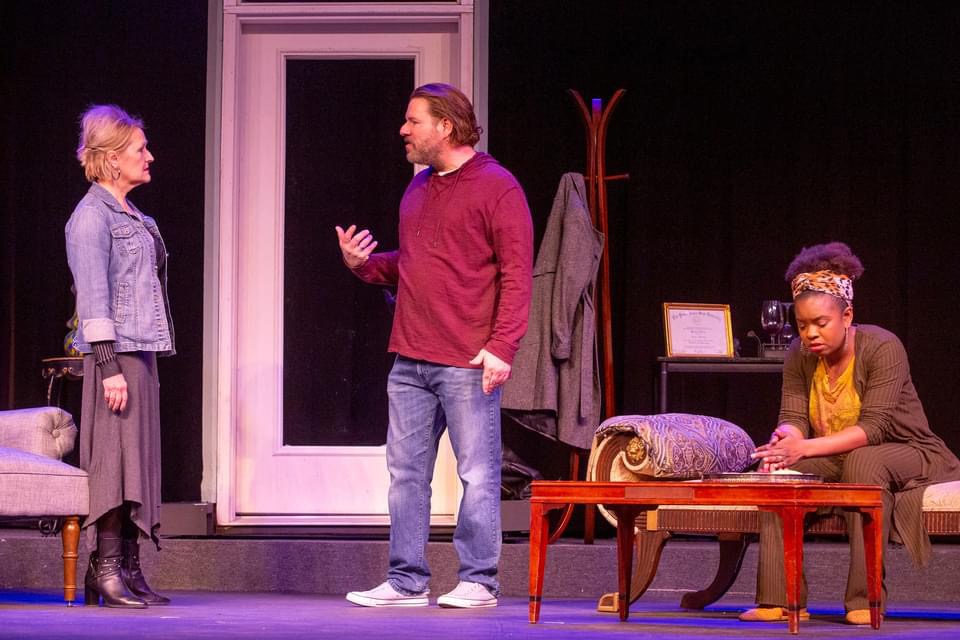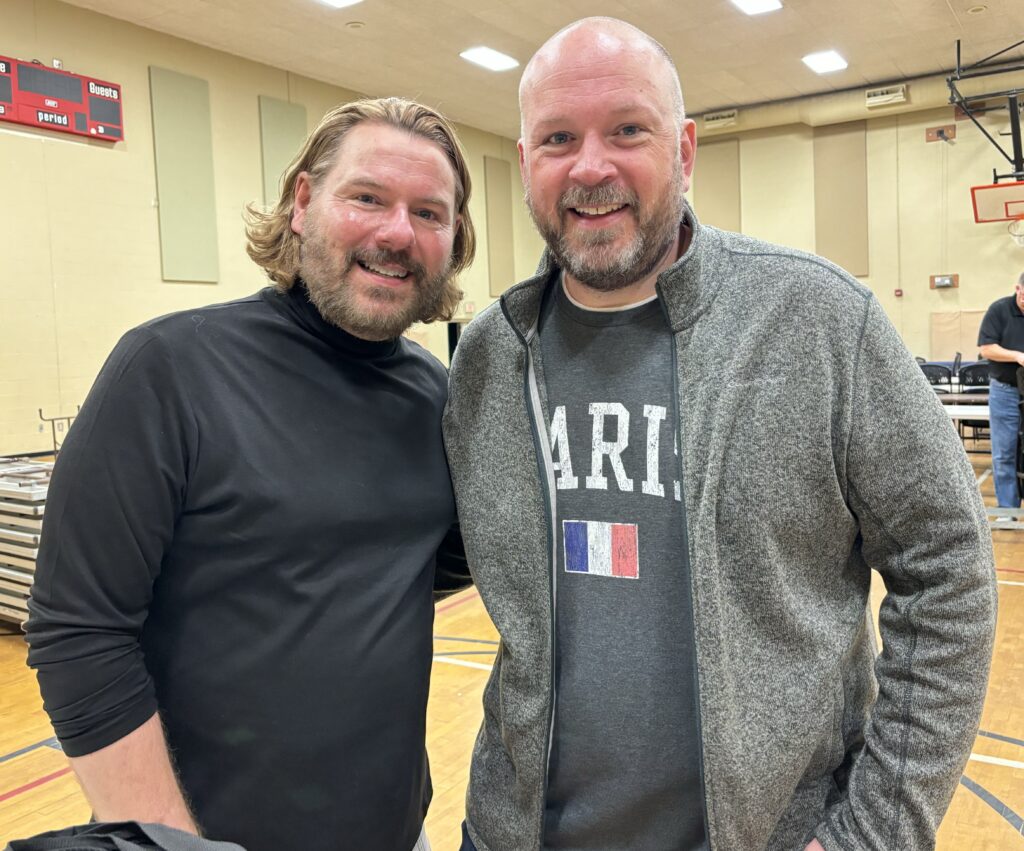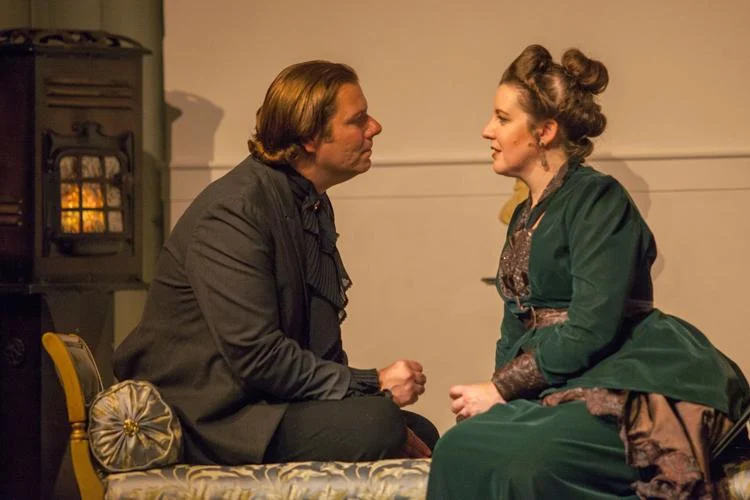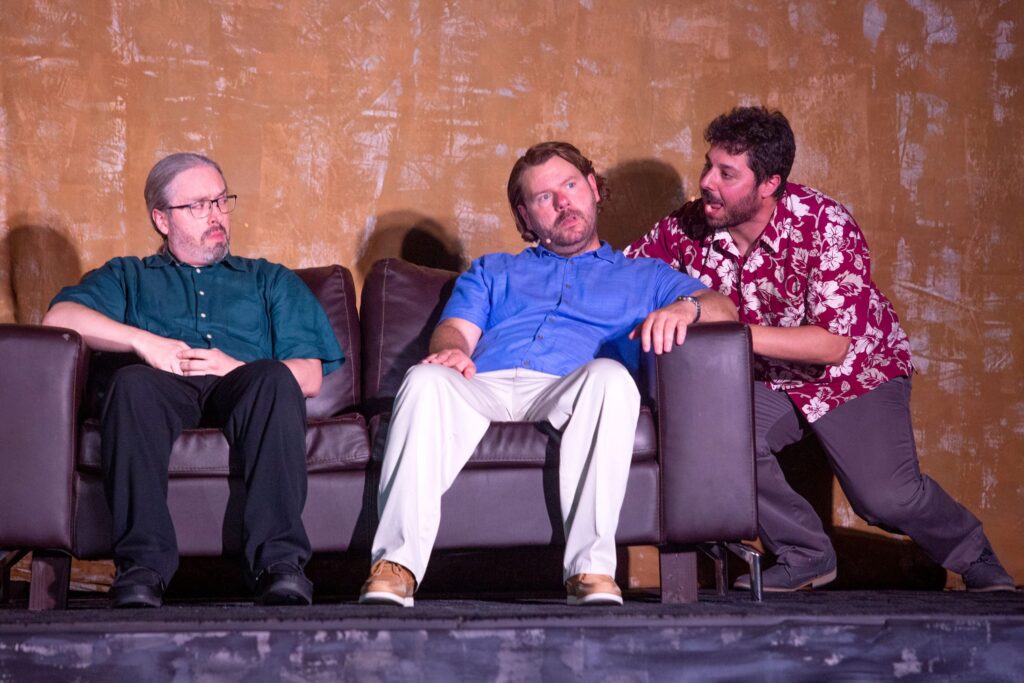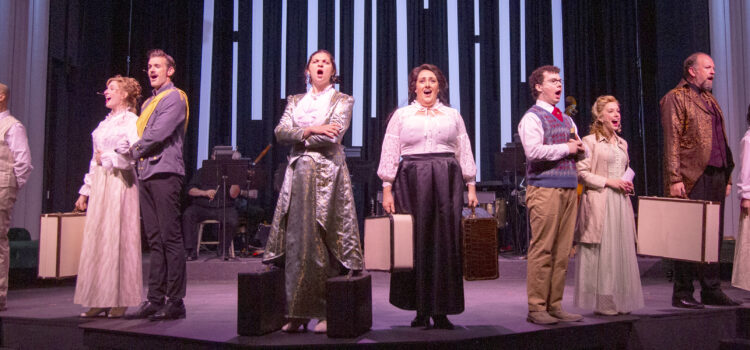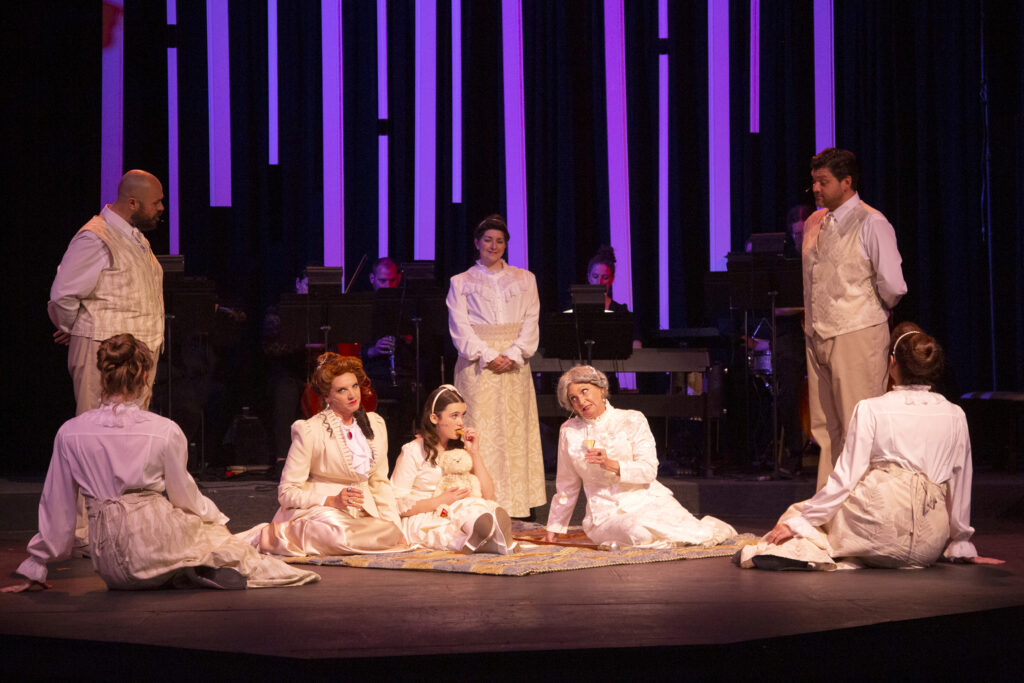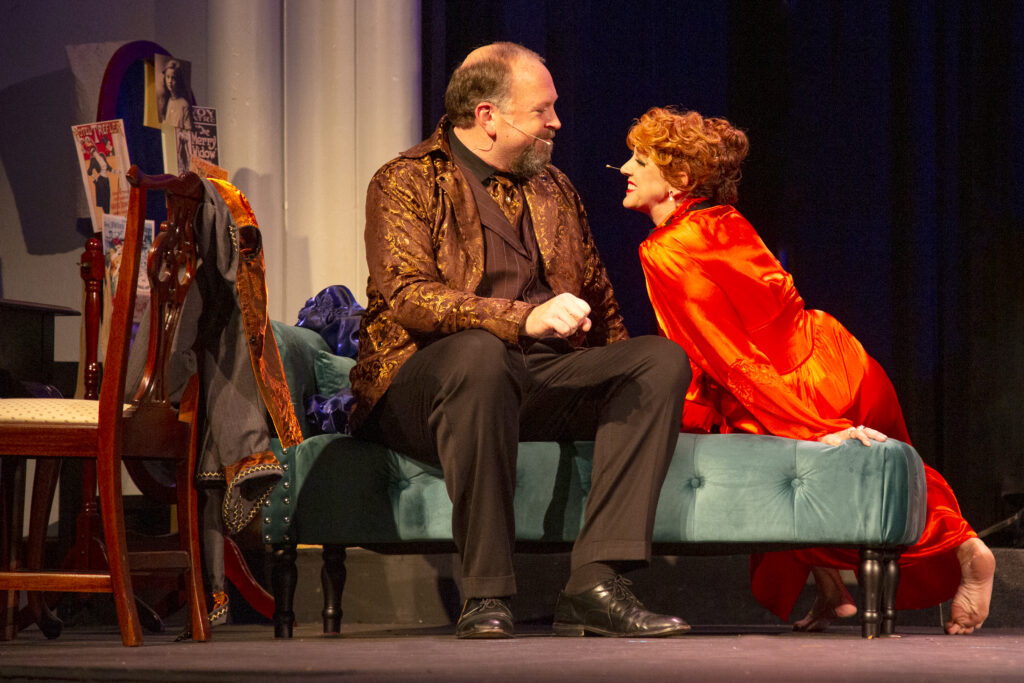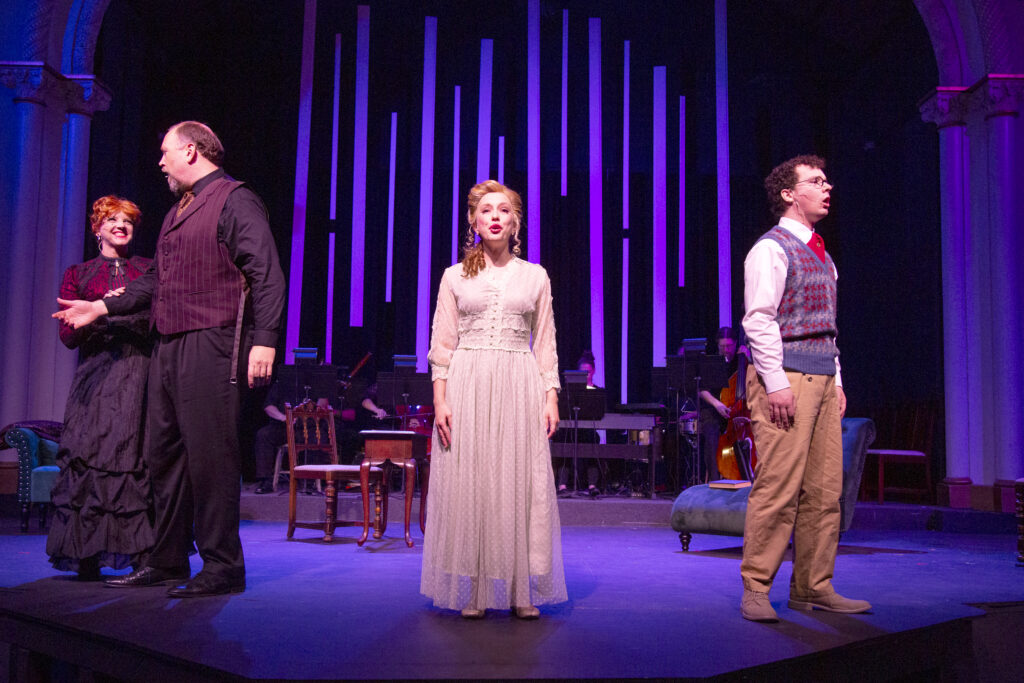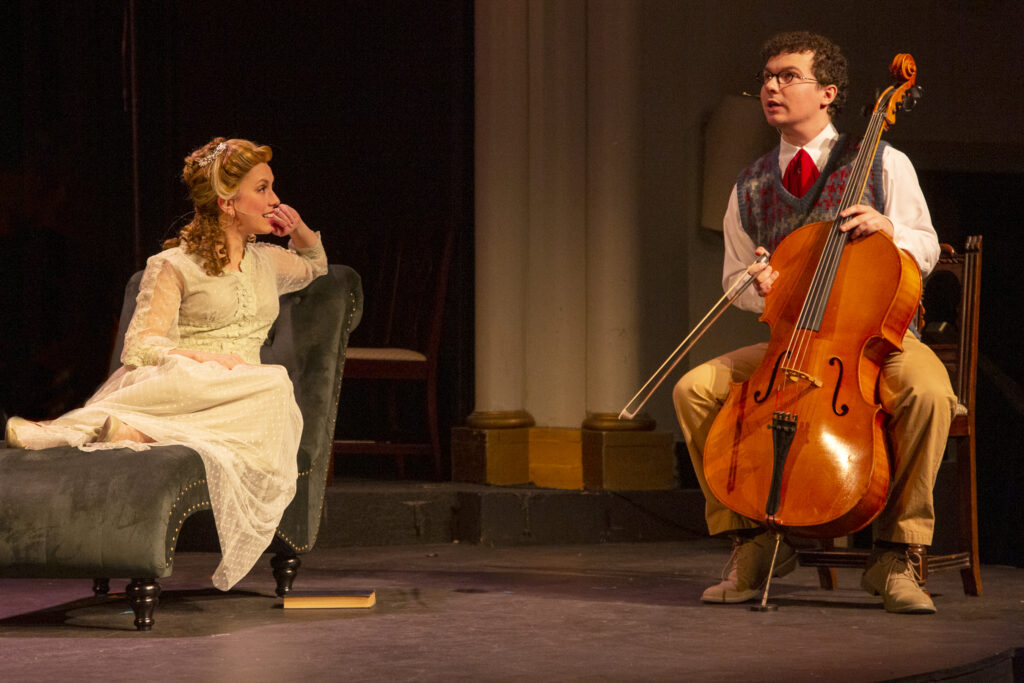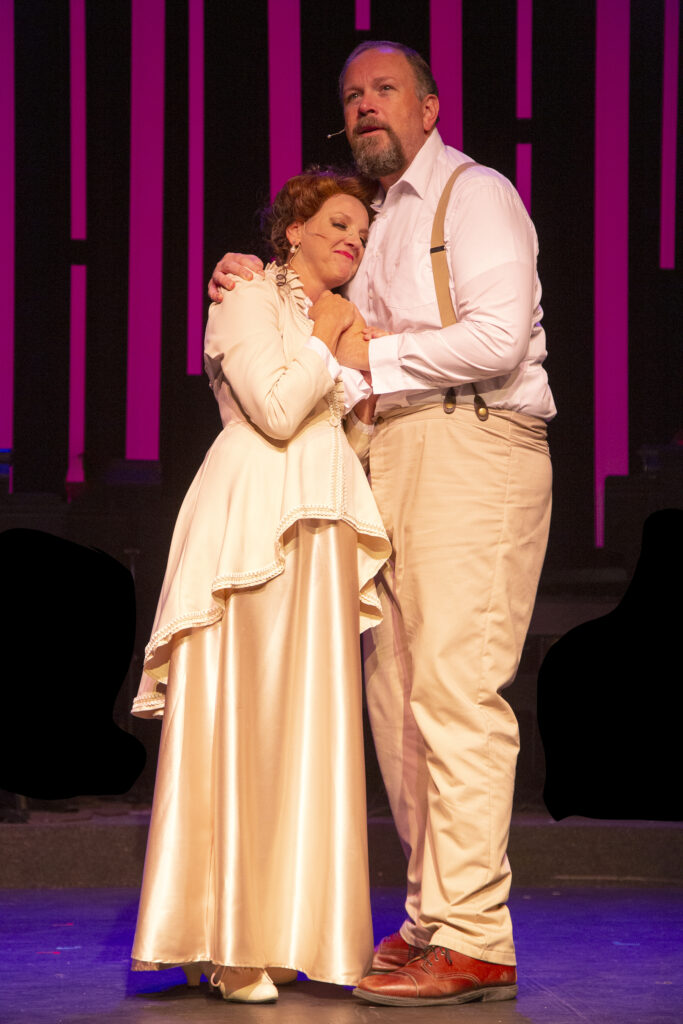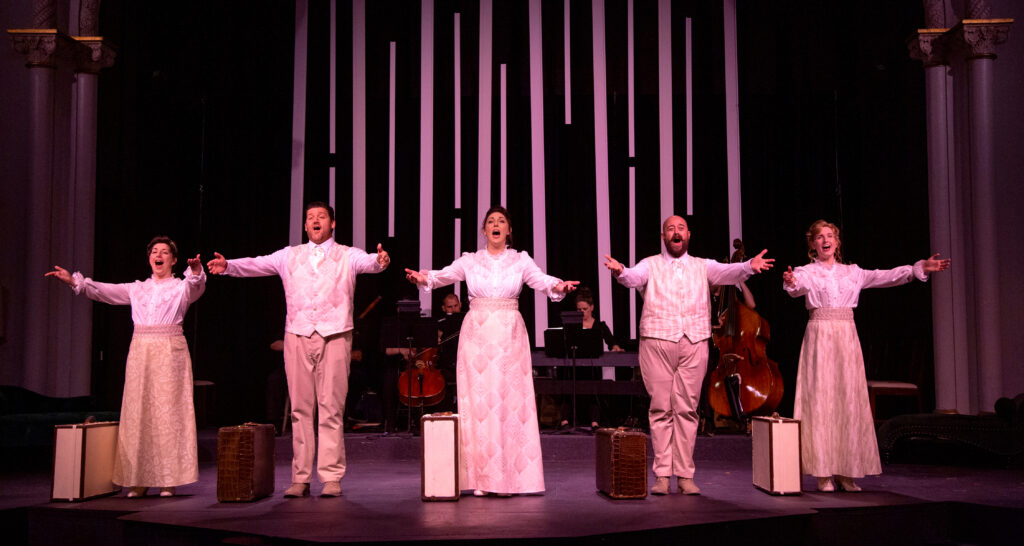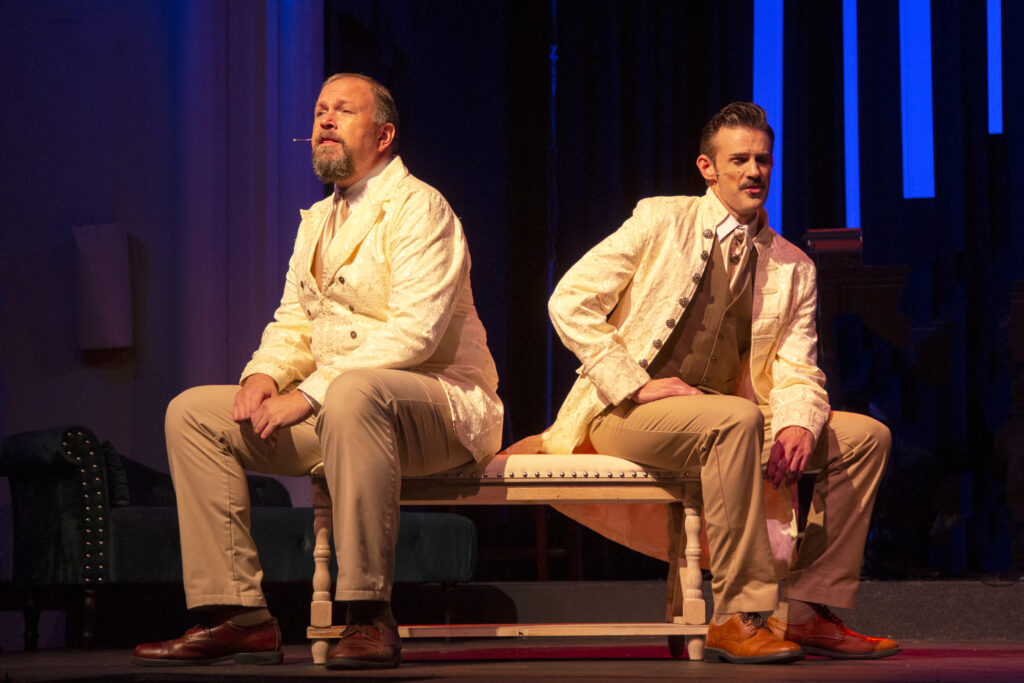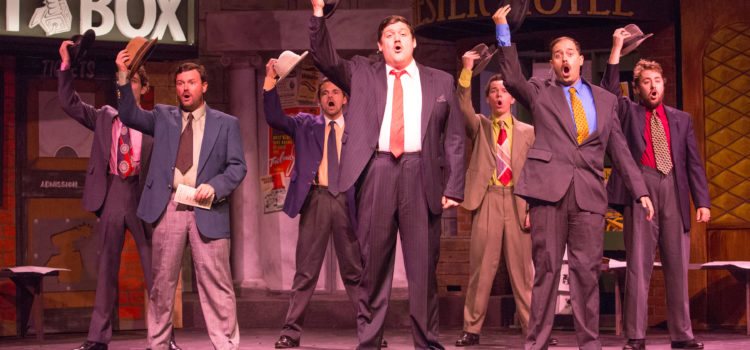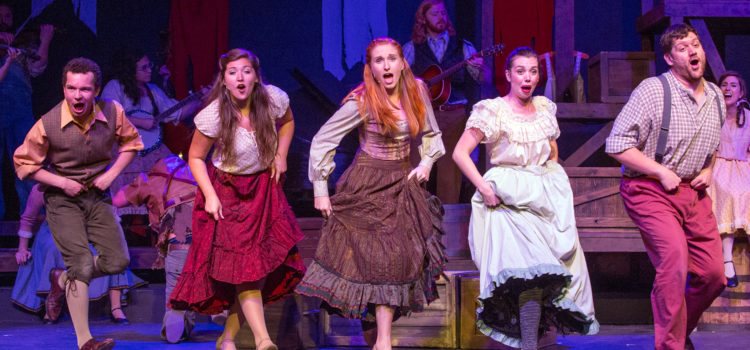By Lynn Venhaus
Edgar Allan Poe’s tremendous body of work has impacted pop culture for generations – art, photography, music, movies and television. Now Stray Dog Theatre pays tribute to the distinguished 19th century American writer and poet by exploring his highs and lows in a stylized musical.
Mixing fact and fiction, and material from his mysterious writings and mostly miserable life, “Nevermore: The Imaginary Life and Mysterious Death of Edgar Allan Poe” features a passionate performance from lead Drew Mizell and others in a seven-person ensemble portraying a wide range of roles.
Mizell immerses himself fully as Poe, from his early years through his studies, and his plethora of adversities as an adult. The cast understood the assignment, with the insight of Sarajane Clark, who was the dramaturg.
As the maestro of this macabre musical, Director Justin Been has embellished this often gloomy story with superb atmospheric visual and aural flourishes. The strong technical work is superior to the unusual musical’s structure that seems repetitive and lacking oomph.
Granted, musical numbers expanding on the literary titan’s torment, and his heartbreaks, gut-wrenching tragedies, woeful bad luck and throes of addiction and family mental dysfunction don’t exactly instill confidence nor come across in a “Life’s a Happy Song” scenario.
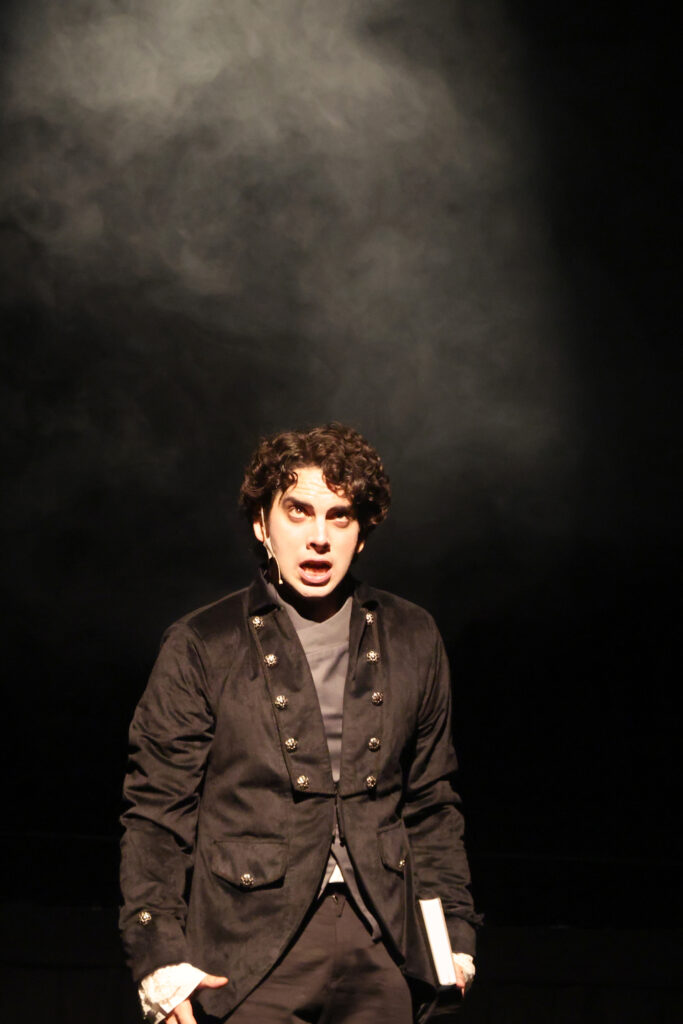
Been, whose work creating effective sound design to punctuate his shows is often a high point, teamed up with Wade Staples, and the pair goes above and beyond here – an outstanding effort that is one of the most distinctive this year.
Matthew Skopyk added spooky instrumental music that infiltrated the dark shadows while he also did orchestrations supplementing composer, lyricist and libretto Jonathan Christenson’s.
Been, who also designed the set and visual effects, employed a hazy shade of New England winter and an eerie and chilly demeanor, while ace lighting designer Tyler Duenow illuminated the creepiness perfectly. The Raven illusion is well-staged.
Been also collaborated with choreographer Maggie Nold for innovative steps, and she came through illustriously, for she wasn’t content with presenting the same old with this troupe.
Costume designer Sarah Gene Dowling fashioned a gothic tale in look and attitude. Dowling’s black-and-white endeavors are striking, as are her pops of deep reds and purple to break up the monochrome palette. She designed appropriate hair and makeup looks for each character that elegantly suited them.
Been’s staging experimented more with images and swirling movements, weaving the seven players in and out of the spotlighted action.
Because the cast is so committed and vocally strong, they elevate Christenson’s very old-timey and very theatrical script and songs that are reminiscent of vintage melodramas and vaudeville olios.
Jennifer Buchheit is the music director but it’s Christenson’s recorded orchestrations that are used, not musicians off stage.
To his credit, Christenson sampled some of Poe’s most famous prose in his dialogue, lyrics and song titles.
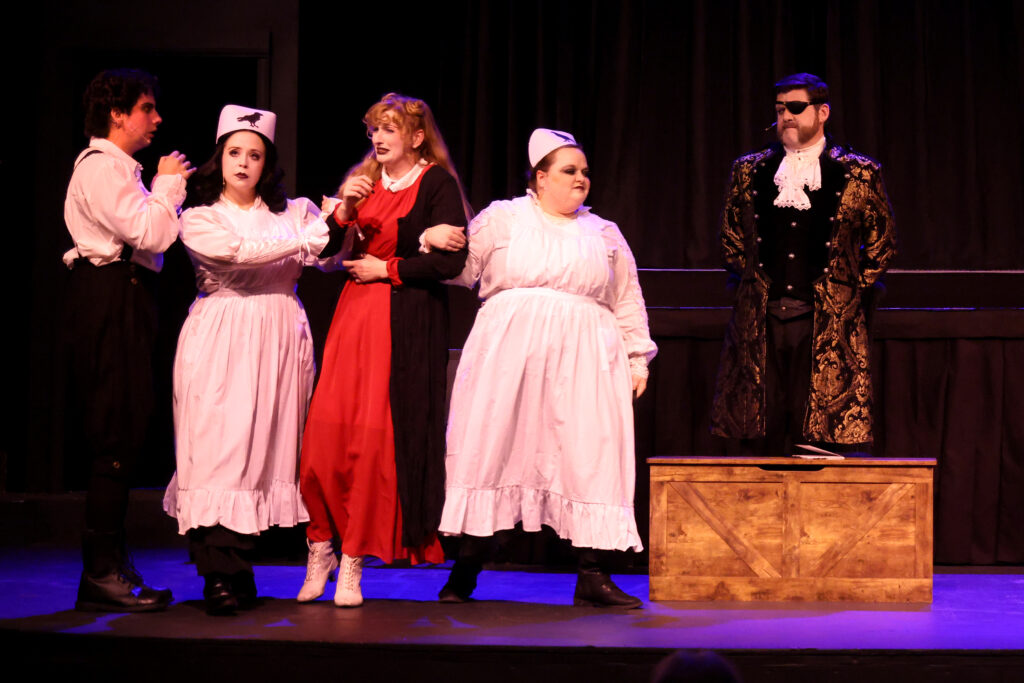
Because Poe’s anguished real life influenced his most famous creations, fans of his literary work will be able to hear some familiar and favorite references. Poe’s timeless works include “The Raven,” “Annabelle Lee,” “The Tell-Tale Heart,” “El Dorado,” “The Masque of the Red Death” and “The Fall of the House of Usher.”
The musical was first performed in 2009 in Canada and later produced off-Broadway in 2015. While the timing is appropriate for the Halloween season, the material isn’t in the same league to become a cult classic like “The Rocky Horror Show,” “Heathers the Musical” or “Evil Dead: The Musical,” and doesn’t have the staying power of Agatha Christie’s immortal dark thrillers. But fans of Poe seem enthralled with it.
Poe was a melancholic soul who went on to great acclaim posthumously. He was born in Boston, the second child of actors, on Jan. 19, 1809, and died under suspicious circumstances in Baltimore at age 40 on Oct. 7, 1849.
He grew up with an older brother Henry and a younger sister Rosalie, but their poverty and loss of parents at an early age doomed them to troubled lives and often long periods of separation. Stray Dog’s outstanding veterans Stephen Henley and Dawn Schmid emotionally deliver in their sibling portrayals.
After enlisting in the Army in 1827, Poe published his first collection of poems. When he failed as an officer cadet at West Point, he decided to become a writer, and switched to prose. The play doesn’t include his military sidestep.
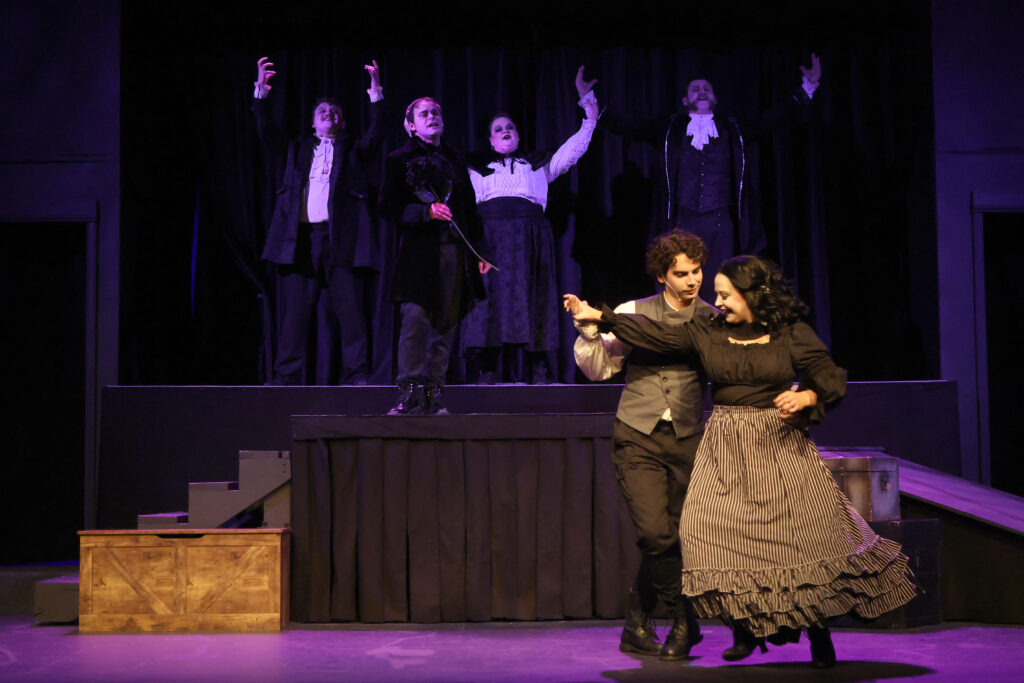
He worked for literary journals and periodicals, and became known for his literary criticism, moving between Baltimore, Philadelphia and New York City. Finally, he garnered instant success in 1845 after publishing his poem “The Raven.”
His two lady loves tug at your heartstrings, as Sara Rae Womack sweetly plays “the one that got away” – Elmira, and Dawn Schmid is sunny as his cousin Virginia Clemm, whom he married at age 27. She died of tuberculosis in 1847.
Schmid also shifts gears as his kind foster mother Fanny and Kevin O’Brien, rocking some appropriate period facial hair, is his cold, cruel foster father John Allan, a tobacco merchant in Richmond, Virginia.
Heather Fehl is Poe’s very dramatic but sickly actress mother Eliza, displaying a supple singing voice, and Michael Cox is dastardly as his slimy publisher Rufus Griswold.
The drama calls for an old-style affectation that doesn’t lend itself to contemporary immersive storytelling, which is my preference, but I appreciate the concept. I didn’t find the songs particularly memorable, although the cast animatedly delivered them with everything they had, and were it not for their fervor, the musical numbers would have been mostly monotonous.
Poe once said, “All that we see or seem is but a dream within a dream,” and Been and company emphasized the ethereal, mystical quality of the material. They gilded this sad and sorrowful tale with their considerable skills to offer an interesting perspective.
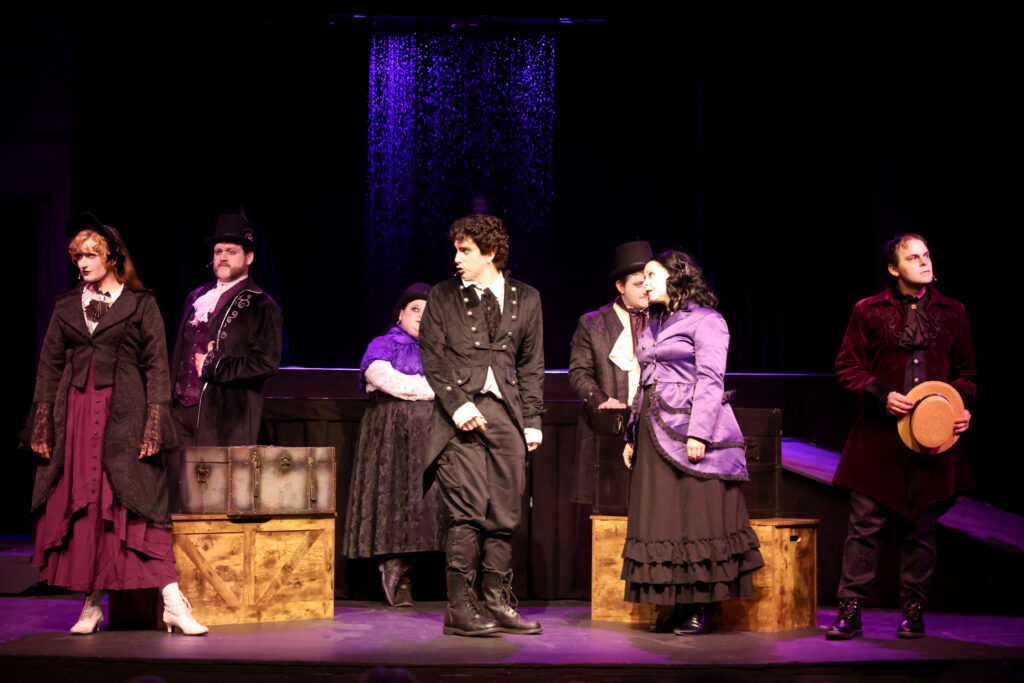
Stray Dog Theatre presents “Nevermore: The Imaginary Life and Mysterious Death of Edgar Allan Poe” from Oct. 17 to Nov. 2. Performances are Thursday through Saturday at 8 p.m., with special shows on Sunday, Oct. 20, at 2 p.m., and on Halloween, Oct. 31, at 8 p.m. at Tower Grove Abbey, 2336 Tennessee Ave., St. Louis.
Tickets are general admission seating, and the box office/will call open 1 hour prior to showtime. For more information, contact 314-865-1995 or visit straydogtheatre.org

Lynn (Zipfel) Venhaus has had a continuous byline in St. Louis metro region publications since 1978. She writes features and news for Belleville News-Democrat and contributes to St. Louis magazine and other publications.
She is a Rotten Tomatoes-approved film critic, currently reviews films for Webster-Kirkwood Times and KTRS Radio, covers entertainment for PopLifeSTL.com and co-hosts podcast PopLifeSTL.com…Presents.
She is a member of Critics Choice Association, where she serves on the women’s and marketing committees; Alliance of Women Film Journalists; and on the board of the St. Louis Film Critics Association. She is a founding and board member of the St. Louis Theater Circle.
She is retired from teaching journalism/media as an adjunct college instructor.

